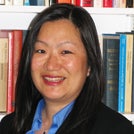Ford-Kavanaugh assault allegations: Who do you believe?
Professor Christine Blasey Ford’s sexual assault allegation against Supreme Court nominee Brett Kavanaugh has thrown his confirmation process into question. The response to the accusation by pundits, politicos and the public reveals an intensifying gender divide, all against the backdrop of the #MeToo movement.
Contact: Ron Mackovich rmackovi@usc.edu or (213) 810-8583
The strategy of intimidation

“Part of the calculus surrounding the threats against Professor Ford is to silence any other women who might consider coming forward between now and the day Kavanaugh is scheduled to return for further testimony. The goal is to intimidate Ford, to be sure, but given the evidence of preemptive preparation on Kavanaugh ‘s behalf, there is likely a well-founded concern that others could follow.
The question is whether they are willing to endure the levels of scrutiny and threat.”
Ange-Marie Hancock Alfaro is a professor and chair of gender studies at the USC Dornsife College of Letters, Arts and Sciences. She will host a discussion at USC in November with Anita Hill, professor of social policy, law, and women’s, gender and sexuality studies at Brandeis University.
Contact: ahancock@usc.edu or (213) 740-6998
On the ‘boys will be boys’ reaction

“Science has shown that developmentally, children around the age of 16 are able to think and reason like an adult, but their emotional brains and judgment don’t fully mature until age 25. And that’s why until college, and for some sometime after, teens or young men and women may do things they regret because of poor judgment.
“This does not give the adolescent-limited offenders a pass, though, for bad decisions and behavior.”
Craig Lareau is a criminal psychologist and lecturer at the USC Dornsife College of Letters, Arts and Science.
Contact: lareau@usc.edu
A critical stage for confirmation

“Justice Kavanaugh’s once seemingly inevitable confirmation process has now entered a critical stage. Assuming the hearings go forward, how he and Dr. Ford appear before their Senator questioners and the national television audience will be crucial to whether or not the judge becomes our next Supreme Court justice.”
Sam Erman is an associate professor at the USC Gould School of Law and clerked for U.S. Supreme Court Justice Anthony Kennedy from 2010-2011.
Contact: serman@law.usc.edu or (734) 717-2642
The ‘ick’ factor and turnout for the midterms

“We have to think about the effect of a sexual harassment scandal or allegation within the context of mobilization: Who actually turns out to vote and their partisan vote choice — and who they pick?
“We are doing some research now to see if the ‘ick’ factor is having an effect on turnout for men, women, Democrats and Republicans. It is driven as much by partisan choice and by candidate choice as it is by mobilization. One of the things you have to account for is that ‘ick’ factor: How does that demobilize voters?”
Jane Junn is a professor of political science at USC Dornsife College of Letters, Arts and Sciences.
Contact: junn@usc.edu or 213-740-6141



